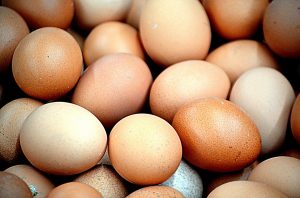Eggs – how much do we really know about them? It’s about time that we dug into the science, and really discovered what it means to eat eggs. Join me on this journey, and will scour the science and find the truth – for your benefit. Are you ready to find out if eggs are incredible or if they are inedible?
There are plenty of things that you and I here, as popular theory, that really informs the way we think and feel about certain foods. Eggs are one of these things.
I have recently found myself in a stage of canvassing medical research to really get to the heart of certain topics. To determine whether or not those “popular truths” are false. With that in mind, I want to get down to this topic that solicits a lot of interest from everyone.














